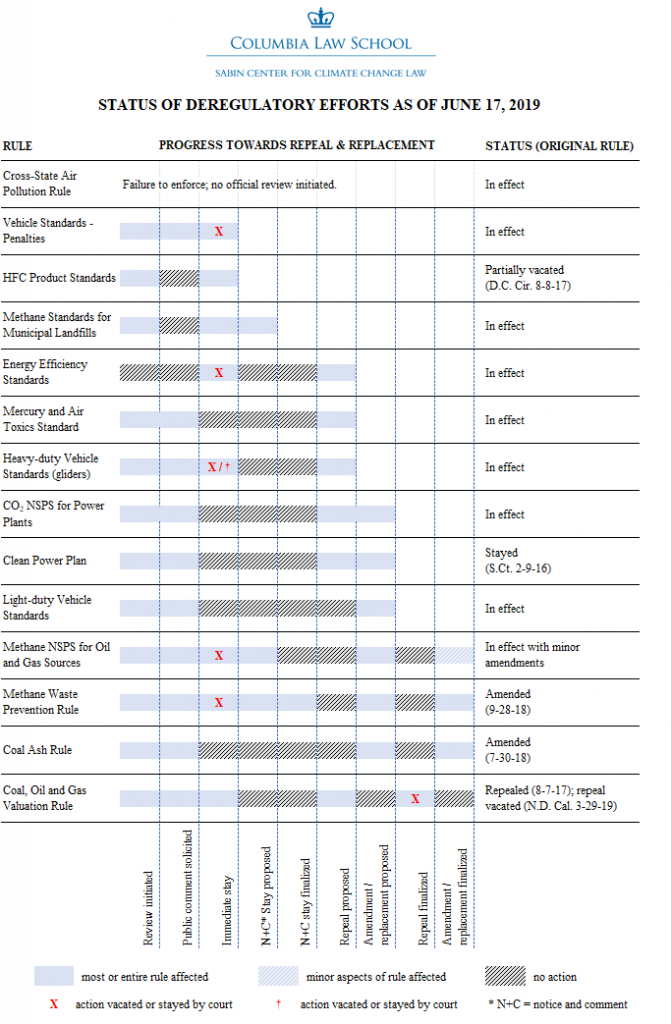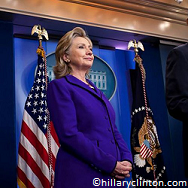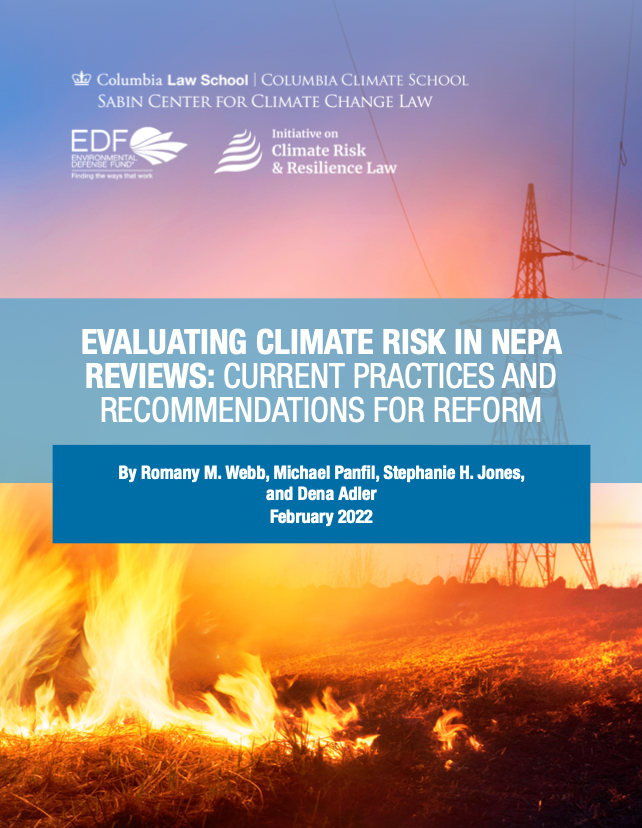The Trump administration has undertaken a sweeping portfolio of actions aimed at weakening federal climate protections and promoting the development and use of fossil fuels.
A new report from Columbia Law School’s Sabin Center for Climate Change Law takes a critical look at what this effort has actually accomplished. It concludes that the administration has achieved far less than meets the eye, due to the statutory safeguards for federal agency rulemaking and judicial intervention to enforce those safeguards. There are dozens of different deregulatory actions underway at various agencies, the most notable examples being the planned rollbacks of rules like the Clean Power Plan and the motor vehicle greenhouse gas emission standards. But in most cases, the pace of the rollbacks has been slow. This is particularly true where the administration is seeking to repeal or revise major regulations, as the administration must adhere to notice-and-comment procedures and must also justify changes to these rules in light of the statutory provisions it is implementing.
The following figure shows the status of efforts to rollback regulations aimed at controlling greenhouse gas emissions and other externalities of fossil fuel use:

Acting pursuant to the President’s orders, federal agencies have initiated the process of reviewing and revising or rescinding all of the major regulations enacted by the Obama administration to control greenhouse gas emissions. However, as illustrated in the above figure, many of these rules remain in effect. The administration has also sought to withdraw the U.S. from the Paris Agreement, expand and expedite fossil fuel development on federal lands and waters, delay and withdraw energy efficiency standards, and bail out the failing coal industry. The scope of the deregulatory efforts initiated to date is alarming, but the power of the executive branch is not absolute, and the administration can only go so far before courts, legislators, or other factors outside of its control prevent it from achieving its goals.
As another recent report from the Sabin Center has shown, the courts have struck down many of these efforts, mostly because of failure to follow the required procedures, and not a single one of these efforts has been upheld, though litigation is still pending on many of them. Even if the administration is successful in repealing critical climate regulations, the real-world effect of these repeals may be limited by external legal, social, and economic drivers, and a future administration could also reverse course and reinstate regulations.
This is not to minimize the damage that the Trump administration is doing to the fight against climate change. Hard-earned federal momentum has been lost and is being reversed. Crucial time is being lost, but the next President could reverse most of the current deregulatory actions.
The full paper is available on our website: Persistent Regulations: A Detailed Assessment of the Trump Administration’s Efforts to Repeal Federal Climate Protections, by Jessica Wentz and Michael B. Gerrard.
We also track the latest regulatory developments on our Climate Deregulation Tracker. We track efforts to suppress, distort or ignore science in our Silencing Science Tracker.



